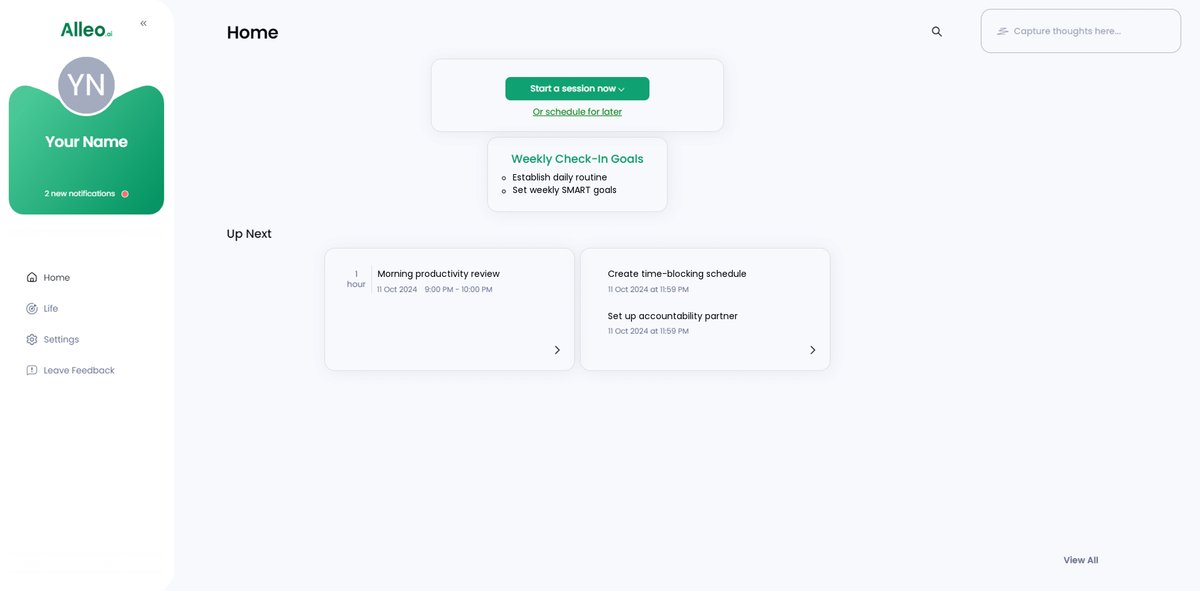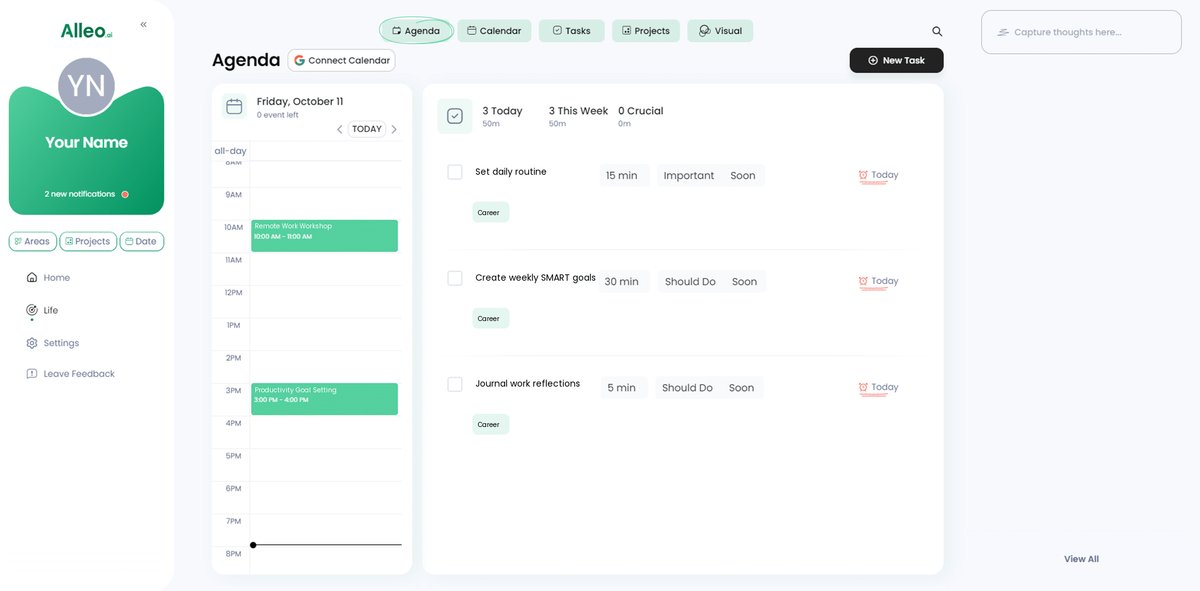4 Essential Strategies to Improve Self-Management Skills for Remote Workers
Are you struggling to stay productive and meet deadlines while working remotely? Improving remote work self-management can be challenging, but it’s essential for success.
As a life coach, I’ve helped many professionals navigate these challenges. I know how tough it can be to stay motivated without direct supervision and maintain work-life balance strategies.
In this article, you’ll learn practical strategies to improve your self-management skills for remote work. We’ll cover structured routines, SMART goals, time-blocking, and self-reflection – all crucial for remote productivity and effective time management for remote work.
Let’s dive in and explore how to enhance your remote work self-management skills.

The Struggles of Remote Self-Management
When you work remotely, the lack of structure can be daunting. Many clients initially struggle with creating a routine that fosters productivity and helps improve remote work self-management.
Without a clear plan for time management for remote work, it’s easy to get sidetracked by household chores or social media.
Self-motivation becomes a significant challenge. You may find it hard to stay focused when there’s no one watching, making self-motivation techniques crucial.
This often leads to missed deadlines and mounting stress, highlighting the need for stress management for telecommuters.
In my experience, people often find that distractions at home are more tempting than in the office. This can result in reduced productivity and feelings of guilt, emphasizing the importance of creating a productive home office.
It’s a painful cycle that many remote workers face daily as they strive to improve remote work self-management.

A Roadmap for Improving Self-Management Skills
Overcoming this challenge requires a few key steps to improve remote work self-management. Here are the main areas to focus on to make progress and enhance your time management for remote work.
- Establish a structured daily routine: Create consistent morning, work, and end-of-day routines to maintain work-life balance strategies.
- Set SMART goals for each work week: Define clear, actionable objectives to stay on track and boost self-motivation techniques.
- Use time-blocking techniques for deep work: Allocate focused time blocks for essential tasks, utilizing remote productivity tools.
- Practice self-reflection and accountability daily: Regularly assess progress and adjust strategies for effective virtual team collaboration.
Let’s dive in to explore these strategies for improving remote work self-management!
1: Establish a structured daily routine
A structured daily routine can significantly enhance your productivity and focus while working remotely, helping you improve remote work self-management.
Actionable Steps:
- Wake up at the same time every day. Start with a short exercise or meditation session to set a positive tone and practice self-motivation techniques.
- Designate specific work hours and breaks. Use a timer to adhere to work and break intervals, enhancing time management for remote work.
- End your day with a wrap-up routine. Review accomplishments and plan for the next day to create a clear boundary between work and personal time, supporting work-life balance strategies.
Explanation:
By establishing a consistent routine, you create a sense of normalcy and discipline. This approach helps you stay focused and minimizes distractions, crucial for setting goals for remote employees.
According to Breeze, a structured routine is crucial for enhancing productivity and managing time effectively.
Key benefits of a structured routine include:
- Improved time management
- Reduced decision fatigue
- Enhanced work-life balance
Adopting these steps will help you maintain a balanced work-life schedule and improve your overall productivity, essential for successful remote work self-management.

2: Set SMART goals for each work week
Setting SMART goals for each work week is essential for improving remote work self-management and staying on track with your objectives.
Actionable Steps:
- Define specific and measurable goals for the week. Clearly outline what you need to achieve and set criteria for measuring progress in your remote work environment.
- Break down larger goals into smaller, actionable steps. Assign deadlines to each task to stay on track and avoid feeling overwhelmed, enhancing your time management for remote work.
- Reflect on progress at the end of each week. Adjust your goals based on what was achieved and any new priorities that have emerged, supporting effective self-motivation techniques.
Explanation:
By setting SMART goals, you create a clear roadmap for your week, which helps maintain focus and motivation in remote work. This approach ensures you stay aligned with your long-term objectives and adapt to any changes, improving remote work self-management.
According to ClickUp, setting clear goals is critical for enhancing productivity and managing time effectively in a remote work setting.
Mastering this technique will help you achieve your goals with confidence and reduce the stress of remote work, contributing to better work-life balance strategies for telecommuters.

3: Use time-blocking techniques for deep work
Using time-blocking techniques for deep work is essential for maintaining focus and productivity while working remotely, helping to improve remote work self-management.
Actionable Steps:
- Identify peak productivity hours. Track your energy levels throughout the day and schedule deep work during these high-energy periods to enhance time management for remote work.
- Allocate specific time blocks for different tasks. Use remote productivity tools like Google Calendar or Alleo’s scheduling feature to block out time for focused work, meetings, and breaks.
- Minimize distractions during deep work blocks. Turn off non-essential notifications and use apps or browser extensions to block distracting websites, aiding in creating a productive home office environment.
Explanation:
By incorporating time-blocking techniques, you create dedicated periods for focused work, which enhances productivity and reduces distractions. This approach helps you improve remote work self-management and maintain work-life balance strategies.
According to Virtual Vocations, time-blocking is crucial for managing remote work and maintaining high levels of productivity.
Effective time-blocking strategies:
- Group similar tasks together
- Allow buffer time between blocks
- Regularly review and adjust your schedule
Implementing these steps will help you achieve your goals, manage your workday efficiently, and improve remote work self-management skills.
4: Practice self-reflection and accountability daily
Incorporating self-reflection and accountability into your daily routine is crucial for maintaining productivity and achieving your goals while working remotely. These practices can significantly improve remote work self-management.
Actionable Steps:
- Keep a daily journal for self-reflection. Write down your thoughts, challenges, and successes at the end of each day to gain insights and enhance time management for remote work.
- Set up an accountability system. Partner with a colleague or use Alleo’s accountability feature to check in regularly and share progress updates, improving virtual team collaboration.
- Celebrate small wins and learn from setbacks. Reward yourself for meeting goals and analyze setbacks to overcome obstacles, which are essential self-motivation techniques for remote employees.
Explanation:
Practicing self-reflection and accountability helps you stay focused and motivated. It allows you to identify what’s working and what needs improvement in your remote work self-management.
This process aligns with industry trends that emphasize continuous learning and personal development. According to Breeze, self-reflection is essential for improving productivity and managing time efficiently in remote settings.
Self-reflection techniques to try:
- Ask yourself critical questions daily to improve work-life balance strategies
- Use visualization to imagine future success and set goals for remote employees
- Practice mindfulness to increase self-awareness and manage stress for telecommuters
Starting these practices will help you remain productive and achieve your remote work goals while improving your overall remote work self-management skills.
![]()
Boost Your Remote Work Productivity with Alleo
We’ve explored the challenges of self-management in remote work, the benefits of overcoming them, and actionable steps to improve remote work self-management.
But did you know you can work directly with Alleo to make this journey easier and faster, enhancing your time management for remote work?
Setting up an account with Alleo is simple. Create your personalized plan and start working with our AI coach to overcome your self-management challenges and boost your remote productivity.
Alleo will follow up on your progress, handle changes, and keep you accountable via text and push notifications, helping you master work-life balance strategies.
Ready to get started for free and improve remote work self-management? Let me show you how!
Step 1: Log In or Create Your Account
To start your journey towards better self-management, log in to your Alleo account or create a new one if you haven’t already.

Step 2: Choose Your Focus Area
Click on “Building better habits and routines” to start improving your self-management skills, which will help you establish a structured daily routine and boost your remote work productivity.

Step 3: Select “Career” as Your Focus Area
Choose “Career” as your focus area to address the self-management challenges in remote work, allowing Alleo’s AI coach to provide tailored strategies for improving productivity, setting goals, and maintaining work-life balance in your professional life.

Step 4: Starting a Coaching Session
Begin your journey with Alleo by scheduling an initial intake session, where you’ll work with our AI coach to set up a personalized plan tailored to your remote work productivity goals.

Step 5: Viewing and managing goals after the session
After your coaching session, open the Alleo app to find your discussed goals conveniently displayed on the home page, allowing you to easily track and manage your progress towards improved self-management and remote work productivity.

Step 6: Adding events to your calendar or app
Use Alleo’s calendar and task features to schedule your time blocks and track your progress, ensuring you stay on top of your goals and maintain productivity throughout your remote workday.

Wrapping Up: Take Control of Your Remote Work Life
We’ve covered a lot today about how to improve remote work self-management.
From establishing a structured routine to setting SMART goals, these strategies can transform your remote work experience. Remember, it’s possible to stay productive and motivated, even without direct supervision, by implementing effective time management for remote work.
Implementing time-blocking and practicing daily self-reflection will help you manage your tasks more effectively and maintain work-life balance. It’s all about finding what works best for you and honing your self-motivation techniques.
Empower yourself to take charge of your workday and improve remote work self-management. You can do this!
To make this journey easier, try Alleo. Our AI coach is here to support you every step of the way, offering remote productivity tools and virtual team collaboration solutions. Start for free and see the difference.
Ready to boost your productivity and enhance your remote work communication skills? Give Alleo a try and achieve your goals with confidence while mastering the art of remote work self-management.